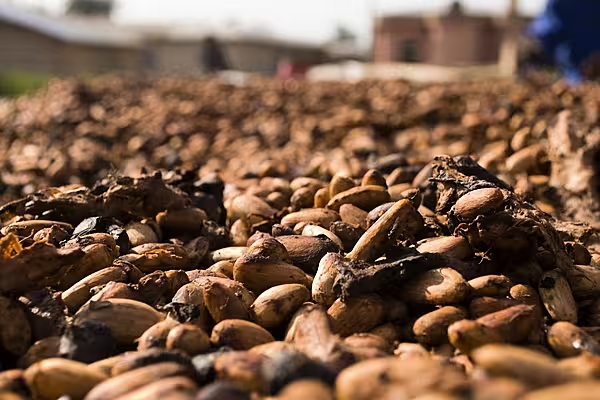Light rains and mild seasonal winds in most of Ivory Coast’s cocoa growing regions last week should boost the quality and size of the October-to-March main crop, farmers said on Monday.
Ivory Coast, the world’s top cocoa producer, is in its dry season from mid-November to March, when downpours are poor or scarce.
Most farmers said current moisture levels would help cocoa trees to produce more large beans in January and February.
Above Average Rain
Rains were above average in the southern regions of Agboville and Divo and in the eastern region of Abengourou. Farmers there said this would help the many small pods to survive the dry season.
"If the weather is good until the end of January, we'll have enough high-quality cocoa," said Antoine Kouassi, who farms near Agboville, where 10.6 millimetres (mm) fell last week, 2.8 mm above the five-year average.
In the western region of Soubre, at the heart of the cocoa belt, rains were below average but farmers said they remained optimistic.
Below Average Rain
Rains were also below average in the centre-west region of Daloa, the central region of Bongouanou and the central region of Yamoussoukro, where no rain fell two weeks ago. But farmers said growing conditions were favourable.
"Humidity was good and the Harmattan is mild," said Alphonse Ettien, who farms near Daloa, where 2.7 mm fell last week, 0.7 mm below the average.
The seasonal Harmattan wind sweeps down from the Sahara for a variable period between December and March. It often causes a sharp drop in humidity.
Farmers said their weather focus was switching and from next month they will start monitoring development of the April-to-September mid-crop.
The weekly average temperature ranged from 27.6 to 29.9 degrees Celsius.
News by Reuters edited by Checkout. For more supply chain stories click here. Click subscribe to sign up for the Checkout print edition.





